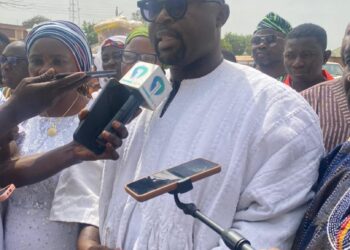By Zulka / padfm.com.gh
World Vision Ghana (WVG) and Savannah Women Integrated Development Agency (SWIDA-GH), a women and children empowerment Non-Governmental Organization (NGO), held a day’s dialogue with school children, traditional and religious leaders, heads of departments, the clergy, assembly, youth groups, women groups, adolescents, among others with a call to help end Child Marriage in the Savannah region of Ghana on 13 April, 2021, at the SRCC conference hall at Damongo.
The project is expected to mitigate Child Marriage and promote education and skills training to girls at all levels in the region so that they become responsible future leaders.
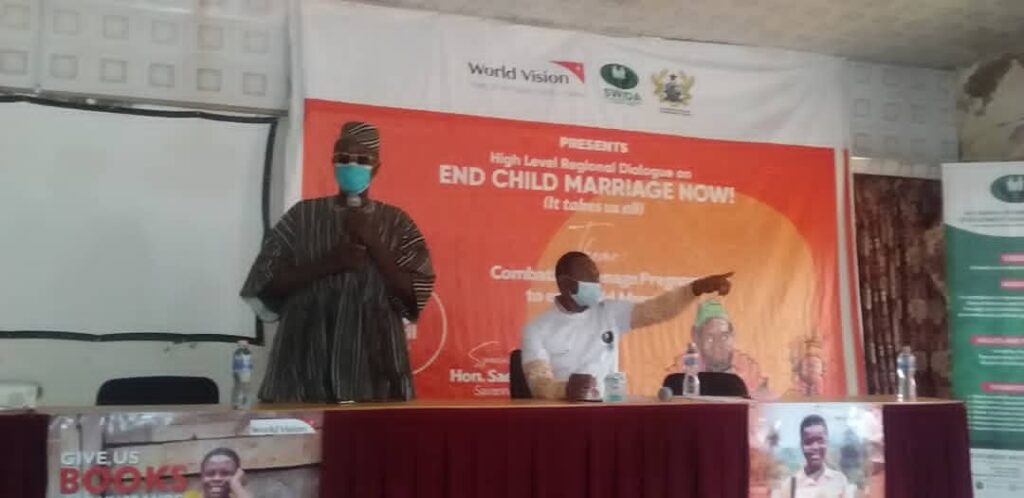
The theme for regional dialogue is “Combating teenage pregnancy to end Child Marriage”, with a slogan ” it takes all of us to end Child Marriage now”.
The program saw the West Gonja Child Parliament inaugurated and the school children Members of Parliament) held an enviable debate on ending Child Marriage on the floor.
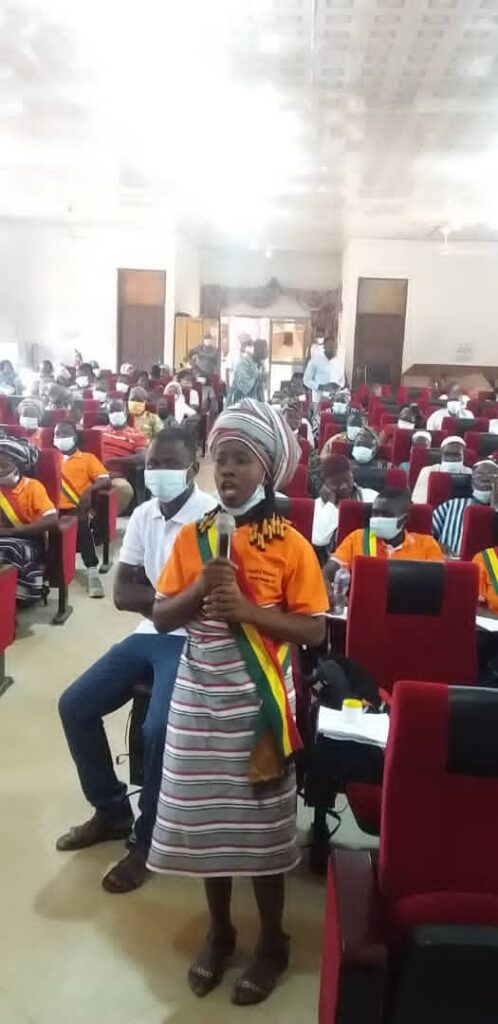
The Northern Regional Operations Manager for World Vision Ghana (WVG), Mr Timothy A. Akanpabadai has called on all stakeholders to get involve in the campaign to end Child Marriage in Ghana because statics available does not favour the five (5) regions in the northern zone.
Timothy Akanpabadai said this at a dialogue with traditional leaders and queen mothers, heads of departments, youth, religious leaders, women groups and others to help end Child Marriage in the Savannah region.
In Ghana, according to UNICEF, one (1) in every 5 girls aged 18 to 24 years, are married before their 18th Birthday. While the prevalence of child marriage in Ghana has declined over the past three decades, progress has not been made within regions most especially, the five (5) regions in the Northern part of Ghana. The then Northern Region recorded child marriage prevalence of 38% against a national prevalence rate of 27%.
Mr Timothy Akanpabadai disclosed that a survey conducted by WVG in 2019 in West Gonja Municipality revealed that over 24% of parents and primary caregivers still believe that, children should exchange their future for early marriages. Also 3% of the girl child experience some form of sexual abuse.
In addition, 59% of children express that, they are not safe in their own communities.
World vision is working assiduously to ensure children in the Municipal have birth certificates.
This we believe will facilitate the End Child Marriage fight in our communities, he added.
Timothy further stated that in the pursuit of “Our vision for every child, life in all its fullness, our prayer for every heart, the will to make it so,” World Vision Ghana launched the national end child marriage campaign and ending all forms of violence against children in 2017 in Tamale. Ever since, World Vision Ghana and its Partners have continually engaged all stakeholders involved in the fight against this canker at the regional and district levels.
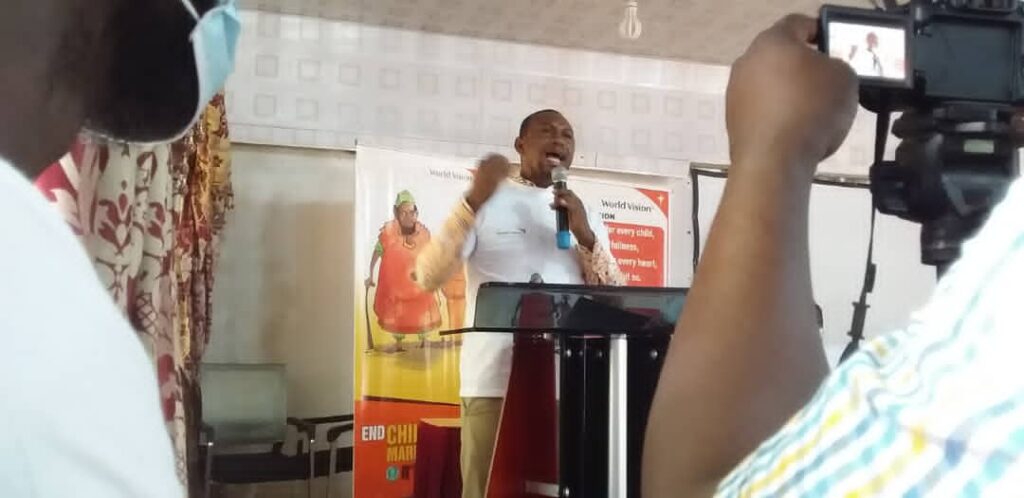
To him, the key drivers of child marriage have not changed. There are multiple and multi-faceted and are linked to gender inequality, poverty, social norms, cultural and traditional practices as well as teenage pregnancy.
The situation is not looking good, hence the need to continuously engage key stakeholders such as our revered Chiefs and Queen Mothers as well as the leadership of the Municipality, our dear children and the law enforcement agencies to think through practical measures to curb this menace.
Timothy Akanpabadai opined that children have much hope in their parents hence, parents can not afford to disappoint the children.
“Our children have fate in us and are expecting bold steps from us to save their lives and re-assure them of a brighter future. We are indebted to our children if we cannot protect them. To make this happen, we all must act now”.
The need for thought through action to make life a better one for children is a must. So WVG is appealing to all necessary stakeholders to get involve and make life better for all children.
Word Vision is therefore calling on all stakeholders to commit to using all means within our power to engage with the communities, District Assembly and all stakeholders to ensure accountability on all issues related to Child Marriage and other causes of violence against children, he added.
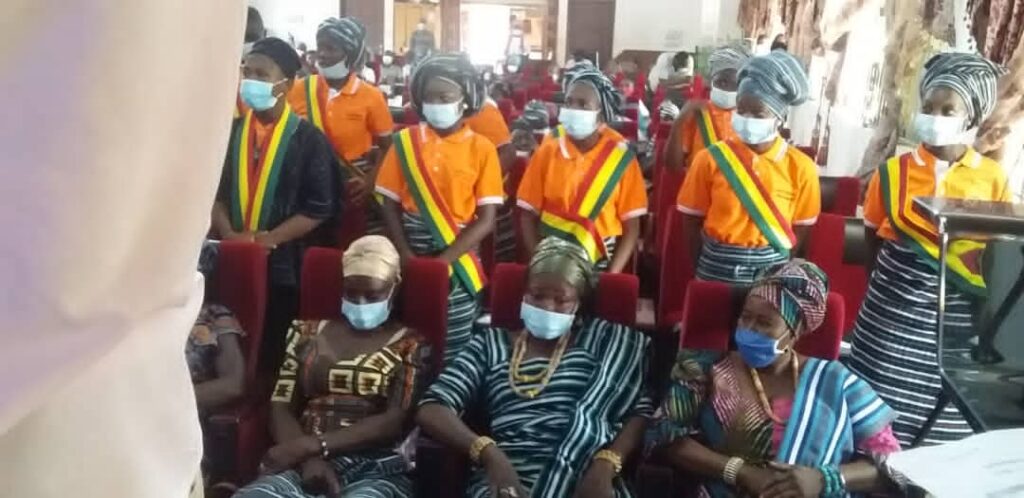
He also called for strengthen national and Regional Houses of Chiefs, traditional councils and religious leaders with adequate capacity to reform and abolish harmful traditional practices;
Build community awareness of existing child marriage laws and formal prevention mechanisms and impact of child marriage.
Re- enforce informal prevention mechanisms by promoting awareness in norms, attitudes and harmful practices.
A call on our traditional leaders to formulate by-laws to prevent child marriage and hold perpetrators accountable.
Promote and support all children especially those with special needs and teenage mothers to return to school.
He assured that WVG will work closely with oartners to end the menace. World Vision assures you of our continuous support and collaboration to make the district and Ghana a safe haven for children. We believe that together we can join hands and embark on the journey of this campaign to End Child Marriage and all forms of violence against children. Together we can bring life in all its fullness to all children in Ghana.
It takes a world to end violence against Children.
The World Vision Ghana (WVG) end Child Marriage campaign coordinator Barbara Y. Asare said the phenomenon of Child Marriage is a form of violence against children, which robs them of their dignity, rights, potentials and future. It perpetuates a vicious cycle of poverty and disproportionately affects girls over boys especially in rural Communities. Many factors – including harmful social norms and traditions, financial fragility and weak legal system contribute to the practices of child marriage, with poverty putting girls at an even greater risk.
She added that Covid-19 pandemic has caused unprecedented havoc on children families and communities. For the most vulnerable especially girls accessing education and staying in school is hard enough. The pandemic has caused disruption in education, an increase in violence against children and sexual and gender-based violence.
Touching on teenage pregnancy, Barbara Yeaboah said teenage pregnancy threatens to block a million girls from returning to school. Teenage pregnancies have become one of the key drivers of child marriage, according to World Vision report.
It becomes the reason for forced marriage because the girls are not ready to be married but are compelled to do so because of the pregnancy. Even when the girl has not become pregnant, the fear of this happening has led some parents to force their girls into marriage to “protect” their premarital virginity and avoid unwanted pregnancy giving the link between teenage pregnancy and child marriage, the factors driving early childbirth also become relevant. These include limited sexual and reproductive health education, low access to contraceptives and low girls empowerment.
A UNICEF report indicates that over nine(9) in 10 married girls are not attending School. Others are forced into marriage when they drop out of school. Girls who get pregnant are also asked to leave school without education; these girls have limited livelihood options and further increasing their vulnerability in the marriages, she lamented.
Reduced education undermines knowledge and skills among children. Keeping girls in school is a critical strategy in preventing child marriage.
She expressed gratitude to the Ghana Education Service for developing guidelines to ensure the return of all pre-tertiary children, particularly girls’ whether pregnant or after delivery.
A total of 7, 213 girls got pregnant across the 16 regions of Ghana in the 2018/2019 academic year, out of this number 3,139 got back to school as a result of the guidelines.
To this end, it has become necessary to raise community awareness and sensitization on the re-entry guidelines to help mitigate teenage pregnancy in schools.
Barbara Yeaboah appealed to the traditional leaders to get involve since they superintend or administer the various communities under their jurisdiction or domain. They have the power and influence to change harmful social norms in communities, make community laws and enforce them and punish offenders. The WVG partnership with the traditional leaders is key in driving attitudinal change by changing traditional laws to prevent child marriage.
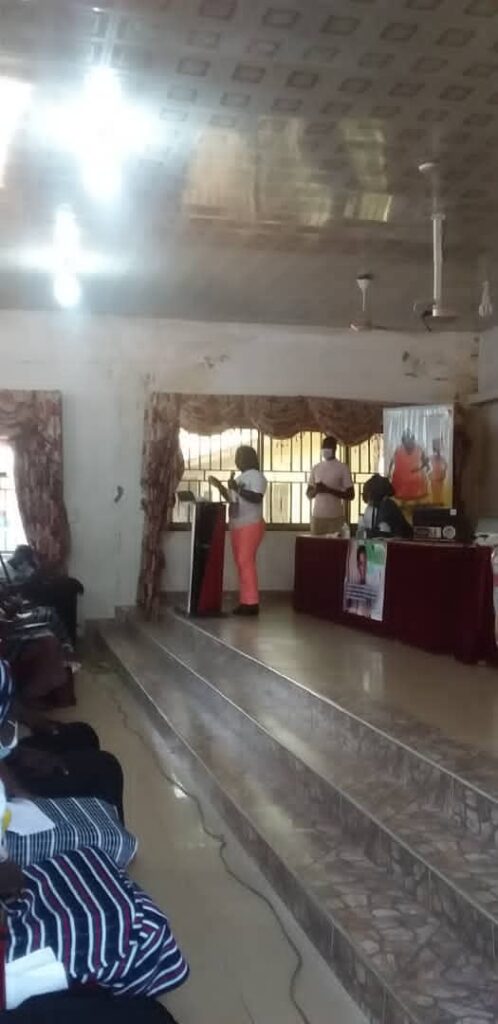
Barbara Yeaboah called for actions to end Child Marriage.
She opined that traditional leaders must act as advocates in raising public awareness against children marriage, reinforce local prevention mechanisms by ensuring perpetrators of child marriage face the law, supporting GES, WVG and partners to raise awareness on pregnancy prevention, identifying vulnerable teenage mothers and child brides in communities and equipping them with life skills and vocational training among others.
She affirmed that WVG will continue the commitment in supporting communities and traditional leaders to protect children from all forms of violence, harm and abuse.
She appealed to all to download the BOAME (HELP ME) App by Gender ministry and also contact Orange Support Center or helpline on 0800111222 to report cases.
Savannah Women Integrated Development Agency (SWIDA-GH), a women and children empowerment Non-Governmental Organization (NGO), held a spearheaded the dialogue. School children, traditional leaders, heads of departments, the clergy, youth groups, heads of departments among others were invited with a call to help end Child Marriage in the Savannah region of Ghana.
The project is expected to mitigate Child Marriage and promote education and skills training to girls at all levels in the region so that they become responsible future leaders.
Hajia Alima Sagito-Saeed, the Executive Director of SWIDA-GH, said the partnership with World Vision Ghana has an objective of reducing child marriage by 50% by close of 2021.
West Gonja municipal assembly is one of the principal development area of World Vision Ghana and it is just right the program is held here.
The theme for regional dialogue is “Combating teenage pregnancy to end Child Marriage”, with a slogan ” it takes all of us to end Child Marriage now”.
She said the dialogue is very important because of the quality of people being brought together. Chiefs and Queen mothers, CHRAJ, GES, assemblies, regional and district departments that are related to gender and women issues and others. Each of the institutions has program and policies they run and we want the sensitization to get to everyone so that the chiefs and Queen mothers can support the project as well as community members to end the menace, she added.
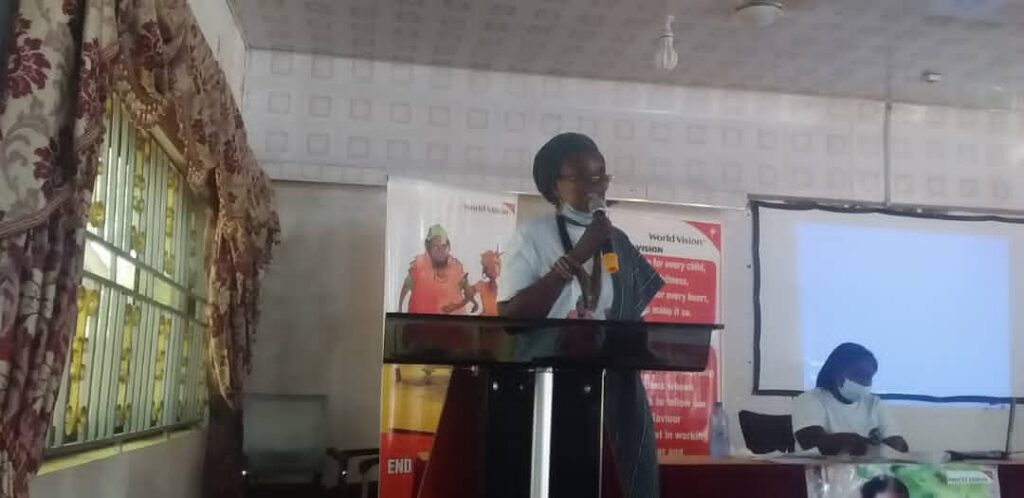
Hajia Alimah said the figures in the north are not very good as compared to the South when it comes child marriage. Reports by UNICEF, WVG and others depicts not a good picture for us.
Nationally, one (1) in every five (5) children, that’s about 20% are involved in early marriage but in the northern region (Savannah inclusive) the rate is about 34% of children that marry before age 18 years.
The project targets school, communities, traditional and religious leaders, security agencies, women groups, youth groups, adolescent among others to help end the canker.
padfm.com.gh / Abdulai Zulkaninu
















